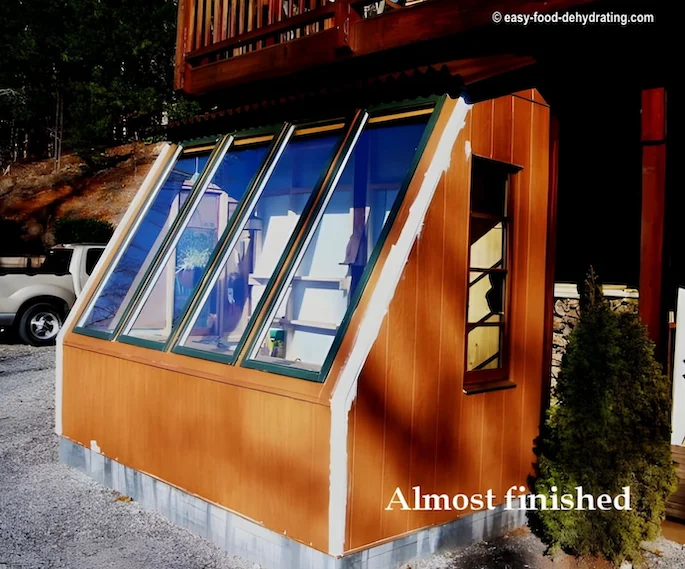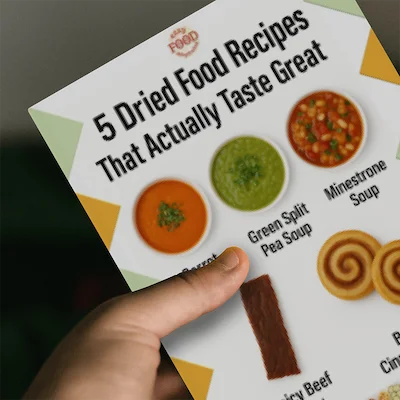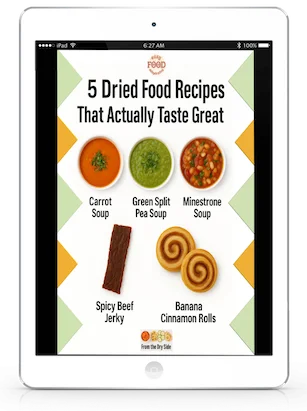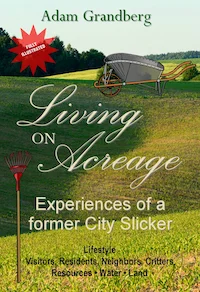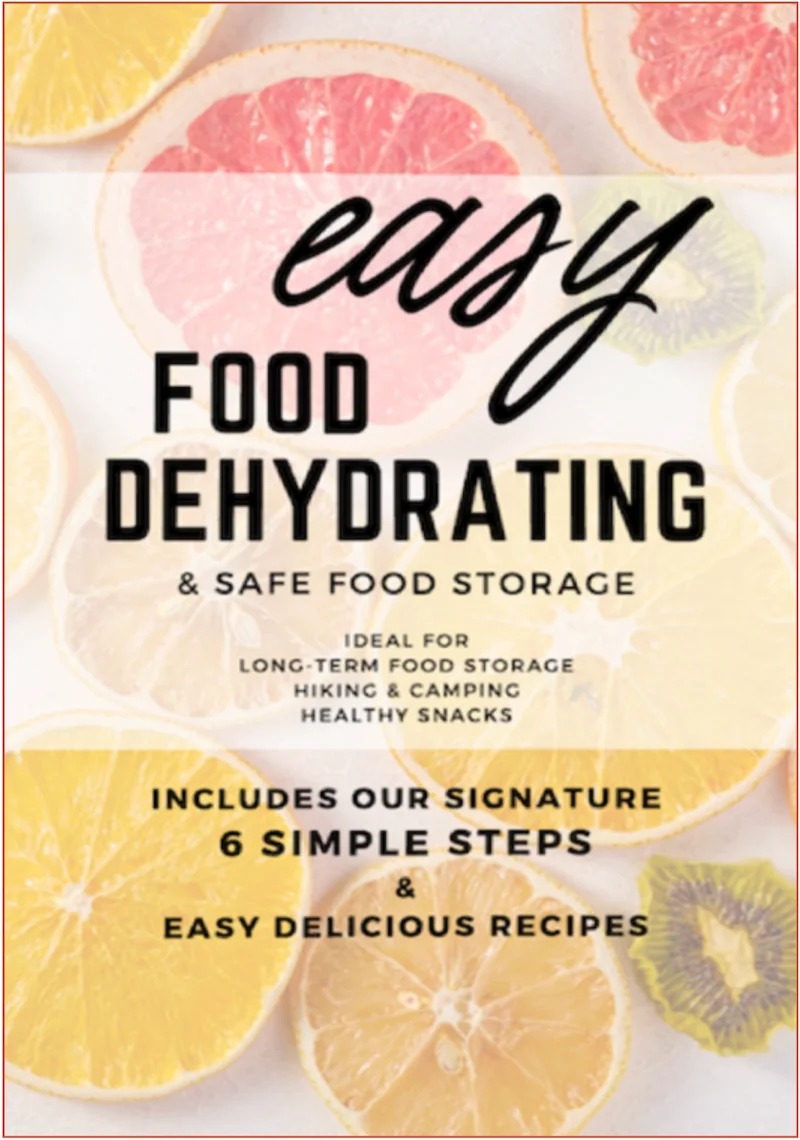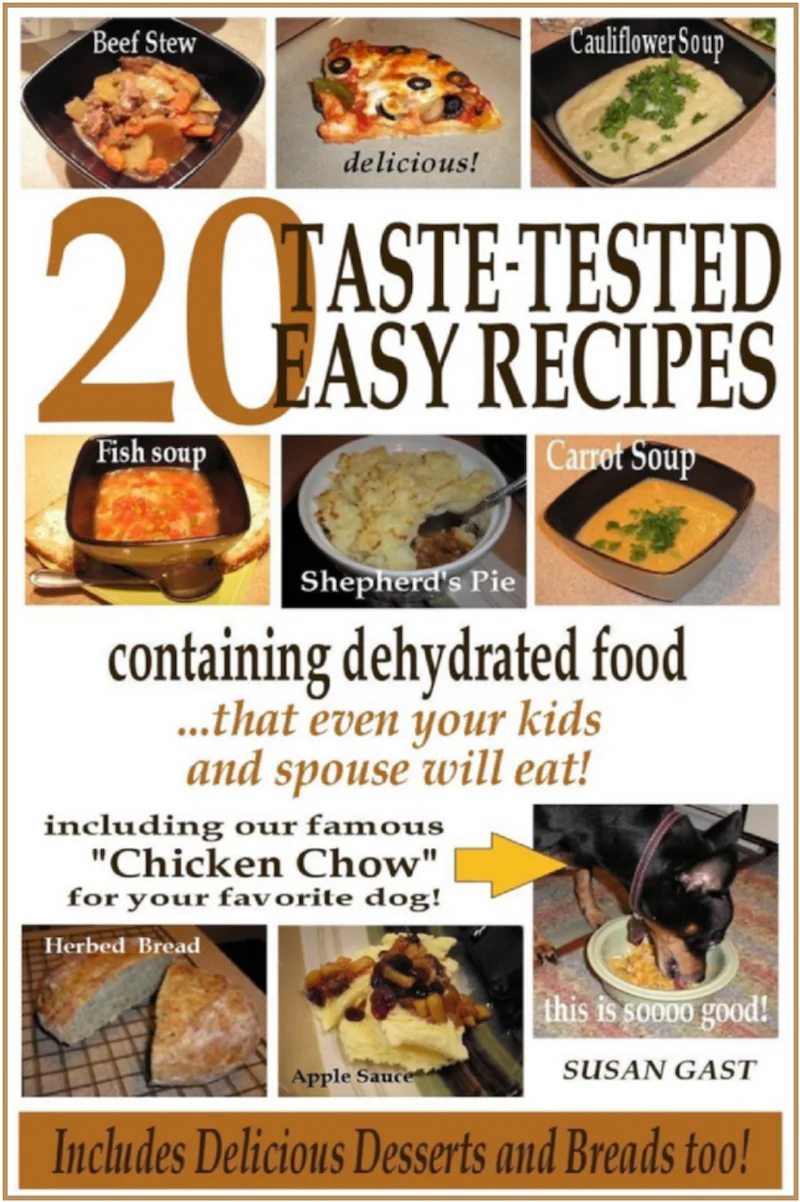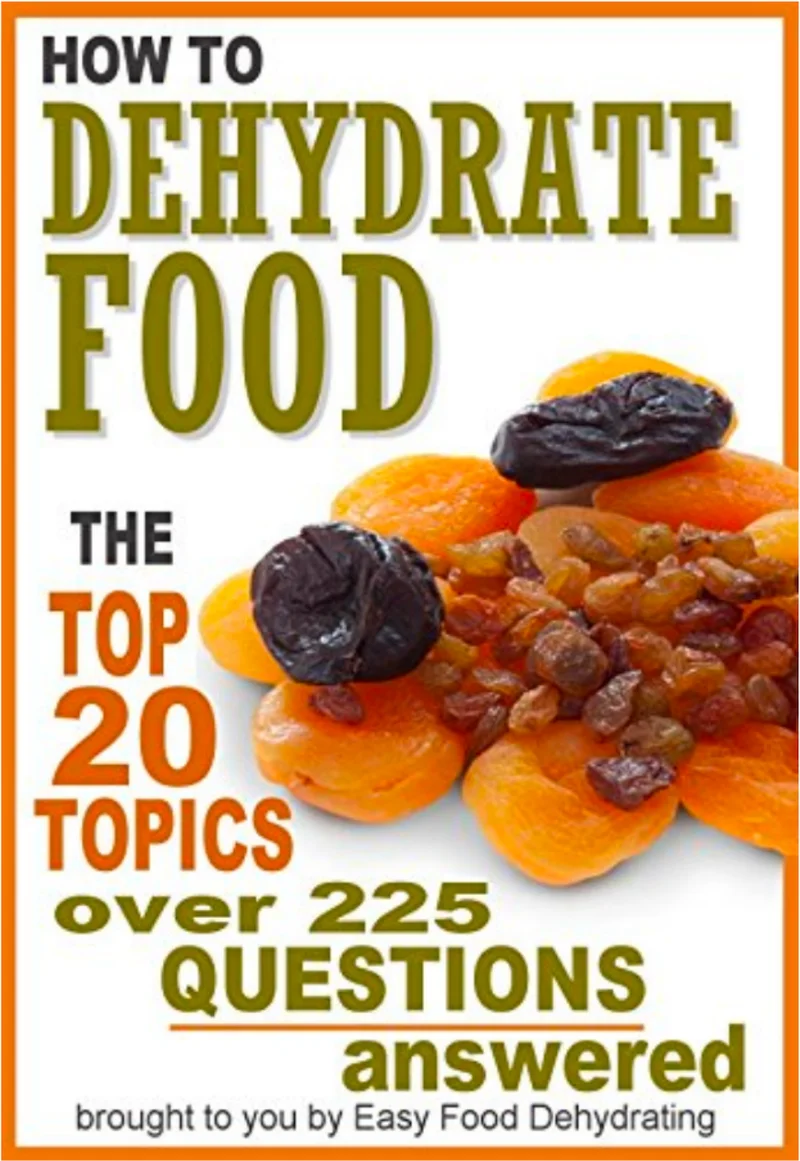What We Mean by “Dehydrate”
Here at Easy Food Dehydrating, “dehydrate” always means using an electric food dehydrator — the easy, reliable way to dry food at home.
- Home
- Articles On How To Dehydrate Food Safely
- Garden and Compost Bin Placement Tips for Best Results
Garden and Compost Bin Tips:
Where to Put Yours for Success
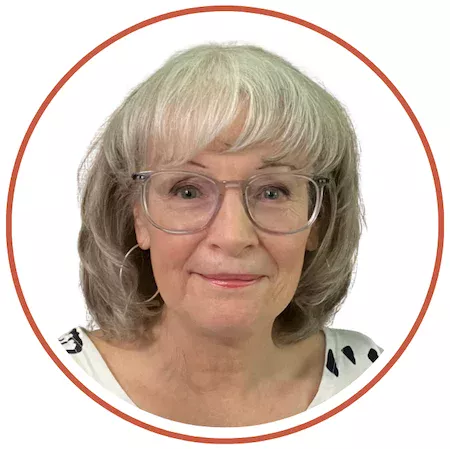
Starting a garden is rewarding, but pairing it with a compost bin takes your success to the next level. Composting not only cuts down on household waste, it also creates nutrient-rich soil that helps your plants thrive. By choosing the right spot for your garden and compost bin, you’ll save time, reduce odors, and enjoy healthier harvests.
✅ Quick Answer: Where should you place your garden and compost bin?
Place your compost bin near your garden for easy access, but far enough from the house to avoid odors. Choose a well-drained, partially shaded location, and keep your garden close to water and full sun for the healthiest crops.
Whether you’re new to composting or upgrading your setup, the tips below will help you position your bin and garden for long-term success.
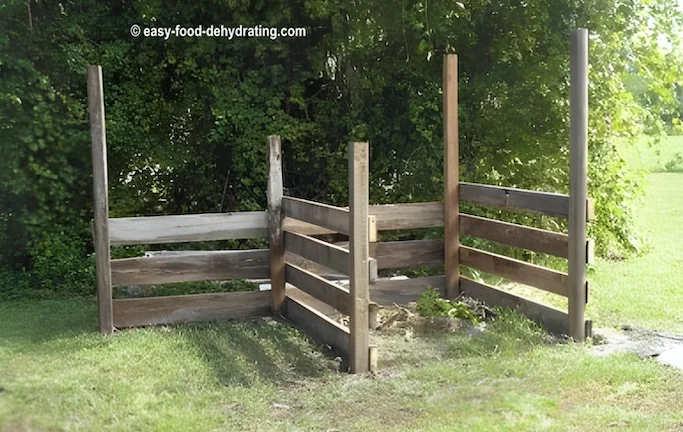
A garden and compost bin go hand-in-hand if you're looking to grow your own food and reduce waste. I finally took the plunge - OK, John M. helped a lot! - and built our compost bin before the garden was even in place.
Whether you're just starting out or planning your next garden expansion, here’s how to position your compost bin for long-term success.
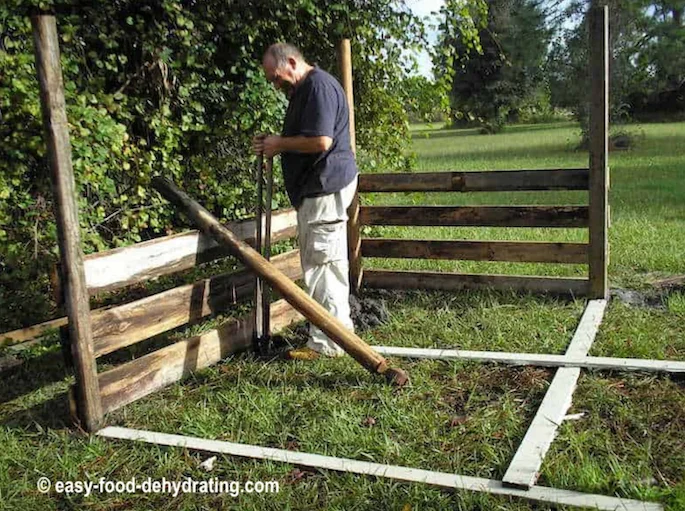
Shown above is a photo of John M, hard at work digging a post hole for the center post at the rear of the bin.
Donations: Scrap Wood and Muscle!
Seeing as the garden hasn't materialized yet, we thought we'd at least get going with the compost bin, so we'll have plenty of suitable material to work with when the garden is ready to go.
My dad had scrap wood he donated to the project, and John donated his muscle.
And me? I 'managed the project'... ha!... not! The compost bin will have two sections (for flipping, see below).
Turn, Flip, Repeat: Why Two Compost Bins Work Better
As one side fills up, turn it over into the other bin. This way, it keeps the pile aerated and happy. So until John returns, I have a one-sided bin... and he said he'd be most surprised if I had one side filled before he returns in six months!
The compost bin is close to where the garden will be for ease of use, and far enough away from the house so we can't smell it!
Here are some composting tips and tricks from Planet Natural Research Center.
Composting 101: Easy Beginner Tips That Actually Work
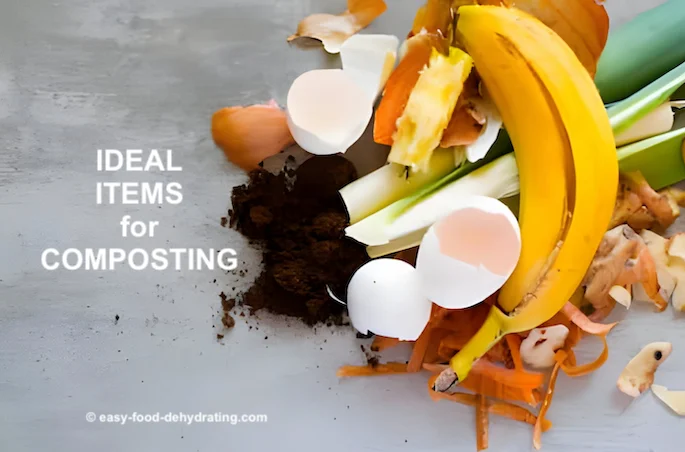 Photo: John Quinn, Germantown TN
Photo: John Quinn, Germantown TNI was contacted by John Quinn, a Remax Realtor from Germantown, TN—he loves all things gardening.
Mr Quinn posted this:
"As much as 30 percent of residential waste can be turned into compost. This effort could dramatically cut back on an individual's waste production.
If they compost in the house or yard (make sure to check that it is allowed in your community), homeowners who are worried that the items they recycle will end up in a landfill can look for replacements they can decompose instead.
People may be surprised with just how much they can toss into a compost pile. Composting can also save money by reducing the need to purchase expensive potting soil or fertilizers to promote healthy plant growth.
It may also reduce irrigation needs, cutting down on water usage and utility bills."
Here's the link to Mr Quinn's How To Compost At Home where you'll learn about what to PUT IN and what NOT to put in your compost pile. Check out some examples below...
What to Toss In (and Keep Out) of Your Compost Pile
Here are a few examples of waste stuff that is good, and those that are not suitable for composting:
Good for Composting:
- Fruit and vegetable scraps (peels, skins, stems, etc.)
- Coffee grounds and tea bags
- *Uncooked egg shells
- Stale bread
- Nut shells
Not Suitable for Composting:
- Meat or dairy products (can attract unwanted pests)
- Oils and fats
- Bones
- Invasive weeds/high seed-bearing plants
- Heavily processed foods like sauces or salad dressings
- Pet waste
*Uncooked egg shells are those that have not been cooked. An example of a "cooked egg shell" would be from hard-boiled eggs.
The key things to compost are plant-based food scraps that can safely break down. Avoid any food items that could cause odors or spread diseases when composting.
Be a Composting Boss in Your Backyard with Backyard Boss
Ditch expensive garden fertilizers… make your own black gold and here’s a great place to learn more about compost over at Backyard Boss.
They go over different types of compost and which suits your needs best.
Garden Placement Secrets: Sun, Soil, and Water Tips
Locate an Ideal GARDENING/GROWING Area Near Water
My photo below shows an ideal spot in our front garden that is close to a water source.
It is also shaded at the hot times of the day either by the trees (or a pull-over grommeted screen that will move horizontally on taut wires - not shown or even built yet - I can dream!).
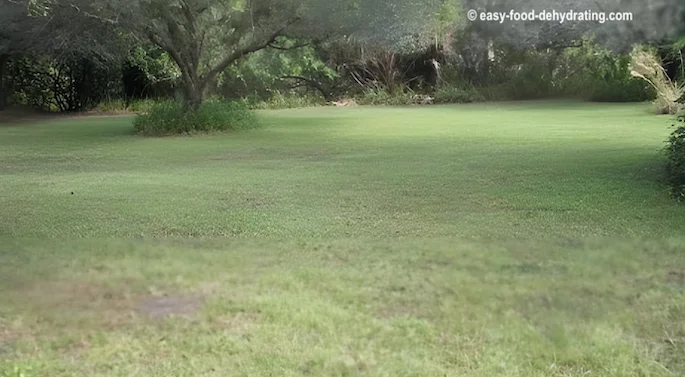
For a Good Garden, Choose its Site Carefully
Take into consideration these points when garden siting:
- size of plot
- the sun's angle
- flood-prone
- soil condition
- best growing times
- what to plant
- critter control
- initial costs
- water source
- size of plot
- the sun's angle
- flood-prone
- soil condition
- best growing times
- what to plant
- critter control
- initial costs
- water source
A Peek Into My Garden: Sweet Potatoes, Herbs & More
Sweet Potatoes
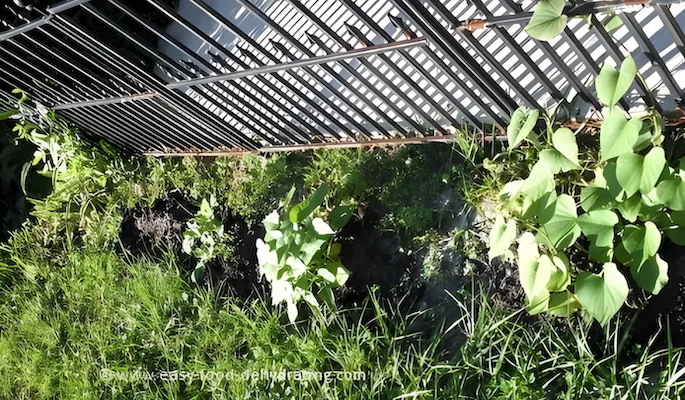
I have made a tiny start to getting the garden going—here's a photo of two sweet potatoes that are producing vines already, and a white potato on the left.
My gardener friend, John M, says after blooming, wait a month, and dig 'em up!
Handy Herb Garden
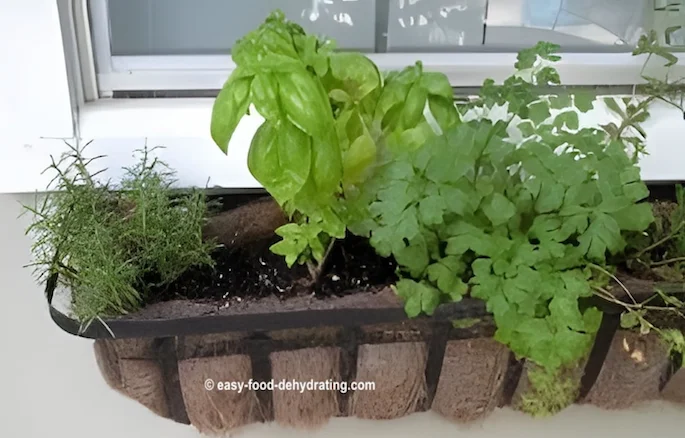
Here's my little handy herb garden, right outside the front door!
I have Rosemary, Basil, and Italian Parsley. I use fresh herbs in our recipes!
Pineapple Starting to Grow
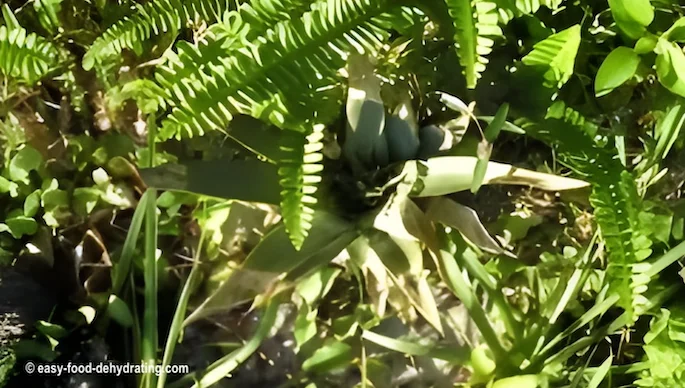
It's very simple to grow pineapples too—after slicing off the top, plant it in a shallow hole and cover it with soil, leaving the neck visible.
Two years later—voila—your very own pineapple! So sweet and juicy too! See how to dehydrate pineapple here.
DIY Inspiration: Greenhouse Built from Recycled Windows
Folks! You've GOT to check out this amazing "made from odds'n'ends" greenhouse - and what makes it super special is its location! It gets lots of sun, has easy "out of the rain" access, and is underneath a wrap-around deck!
Check out Bev's smart use of space beneath an upper-story deck... Her recycled greenhouse is built around the use of some recycled windows!
Your Compost & Garden Questions, Answered
Where is the best place to put a compost bin?
Where is the best place to put a compost bin?
Place it close to your garden for convenience but at least 20 feet from your house to avoid odors. A level, well-drained, partially shaded spot works best.
What can I safely compost at home?
What can I safely compost at home?
Compost fruit and vegetable scraps, coffee grounds, tea bags, eggshells, yard trimmings, and shredded paper. Avoid meat, dairy, oils, bones, and pet waste to prevent odors and pests.
Do I really need two compost bins?
Do I really need two compost bins?
Yes—having two bins makes turning easier and speeds up decomposition. You can fill one while the other “cooks,” giving you a steady supply of finished compost.
Does composting reduce household waste?
Does composting reduce household waste?
Definitely! Up to 30% of what you normally throw away can be composted, turning trash into nutrient-rich soil instead of adding to landfills.
Can I compost year-round?
Can I compost year-round?
Yes. Composting slows down in colder months, but your pile will keep breaking down. Adding dry leaves or shredded paper helps balance the mix in winter.
Thanks for visiting! Starting with a garden and compost bin may feel like a big step, but even small efforts - like composting kitchen scraps or planting one raised bed - can transform your food supply. Your plants will love the nutrient-rich compost, and you’ll love knowing you’re reducing waste and growing your own food.
Before you go, don’t forget to grab your free 5 Dried Food Recipes You’ll Actually Love PDF (below). From hearty soups like carrot, minestrone, and split pea to tasty snacks like spicy beef jerky and banana cinnamon rolls, you’ll discover just how easy and delicious preserved foods can be.
Get 5 Dried Food Recipes You'll Actually Love
Here's where you can get your copy of our all new
5 Dried Food Recipes (That Actually Taste Great)
They're my all-time favorite easy dried food meals!
Get it here right now.
For Free!
Before You Go...
If you enjoyed this page, tap the ❤️ in the lower right-hand corner.
It saves this page to your Grow bookmarks so you can find it again later.
You’ll also see quick share buttons to copy the link, post to Facebook,
or save it straight to Pinterest.
